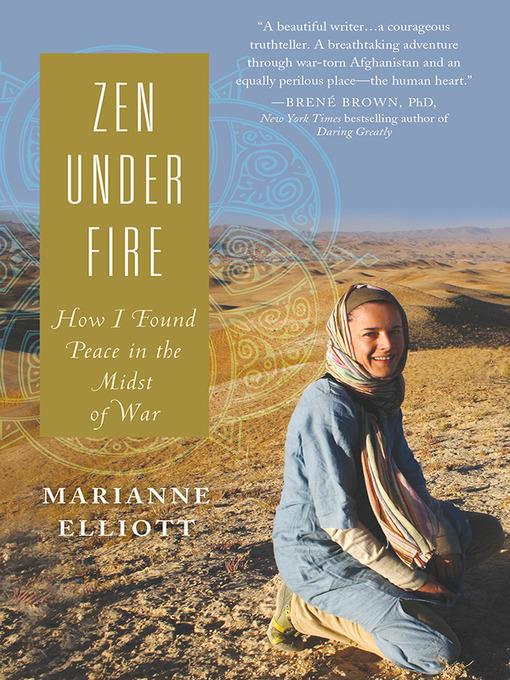
Zen Under Fire
How I Found Peace in the Midst of War
کتاب های مرتبط
- اطلاعات
- نقد و بررسی
- دیدگاه کاربران
نقد و بررسی

May 13, 2013
Veteran human rights lawyer Elliott relates her two years in Afghanistan working for nongovernmental organizations (NGOs) and monitoring human rights cases for the United Nations Assistance Mission in Afghanistan (UNAMA). Beginning with the assassination of a powerful tribal leader on her first day, Elliott endures much in the war-torn country, from personal upheavals and triumphs to professional disappointments and achievements. Precisely recording her emotional states, she explains how yoga, meditation, and journaling eased her trenchant perfectionism and provided an outlet for her anger, guilt, and sadness. After directing successful workshops focused on ending violence against women, Elliott builds confidence in her new surroundings and begins to find humor in the absurd—while discussing religion with an Afghan driver she notices a similarity to debates about football teams. She also highlights the behavior of her Afghan colleagues and officials: their kindness, courtesy, generosity, and genuine desire for justice prevail against great odds. She points to disillusioned foreign aid workers, overlapping humanitarian and military efforts, and protocol-heavy U.N. initiatives as barriers to real change in the country. At times there is an imbalance between Elliott’s professional role and her personal journey. Yet overall, her eyewitness report presents a solid view of Afghanistan’s potential. Agent: Laura Nolan, The Creative Culture

April 15, 2013
An activist's candid account of the hardships she endured working as a human rights officer for the United Nations. In 2006, Elliott arrived in Herat, Afghanistan, thinking she had finally gotten her "dream job." But Herat proved every bit as challenging as Kabul, the city where she had been stationed before. Just one month after her arrival, she was called upon to defuse an explosive situation between two feuding tribes that erupted after the leader of one tribe was assassinated. Elliott was soon mired in the thorny politics of both her job and the region. U.N. bureaucracy on one side and the machinations of desperate Afghan officials on the other made the task of getting humanitarian aid to people in need extremely difficult. For a while, Elliott seemed to thrive on the excitement created by coping with challenges that "seemed well beyond [her]." But soon, the accumulated weight of years working in war zones, including the Gaza Strip, began to take its toll on her. She suffered from insomnia, anxiety and despair, and a romantic relationship with a fellow aid worker slowly fell apart. Worse still, Elliott began questioning whether her tireless work was genuinely helping anyone. Desperate to regain her balance, she turned to yoga, a practice that helped her come to terms with the personal limits she had ignored in her zeal to make a difference in the world. Elliott describes her experiences with an open-heartedness that is admirable, but her memoir tells more than it shows and often reads more like an interesting field report than a fully realized book. An earnest but fairly unskilled rendering of a humanitarian worker's trials and tribulations in Afghanistan.
COPYRIGHT(2013) Kirkus Reviews, ALL RIGHTS RESERVED.

April 15, 2013
A human rights lawyer with some experience working in the Gaza Strip, Elliott accepted an assignment with the UN peacekeeping mission in Afghanistan in 2005. On her first day, she is left in charge of the office when the leader of a tribe at war with another tribe is assassinated, signaling the failure of the UN's attempt to negotiate peace. The intertribal strife is a proxy for tensions between the U.S. and Iran. Her experience with researching human rights abuses has not prepared her well enough for the mental and emotional turmoil she will face as she confronts the perils of war and threats of kidnapping. Elliott finds comfort in friendships, particularly with the women of Afghanistan; a sometimes rocky romance with a fellow UN worker; and yoga as she searches for calmness and assurance in her efforts to bring peace to a war-torn nation. After returning home to New Zealand, Elliott reflects on the psychological and emotional challenges of humanitarian work and the importance of bolstering the spirits of those who perform it.(Reprinted with permission of Booklist, copyright 2013, American Library Association.)

























دیدگاه کاربران